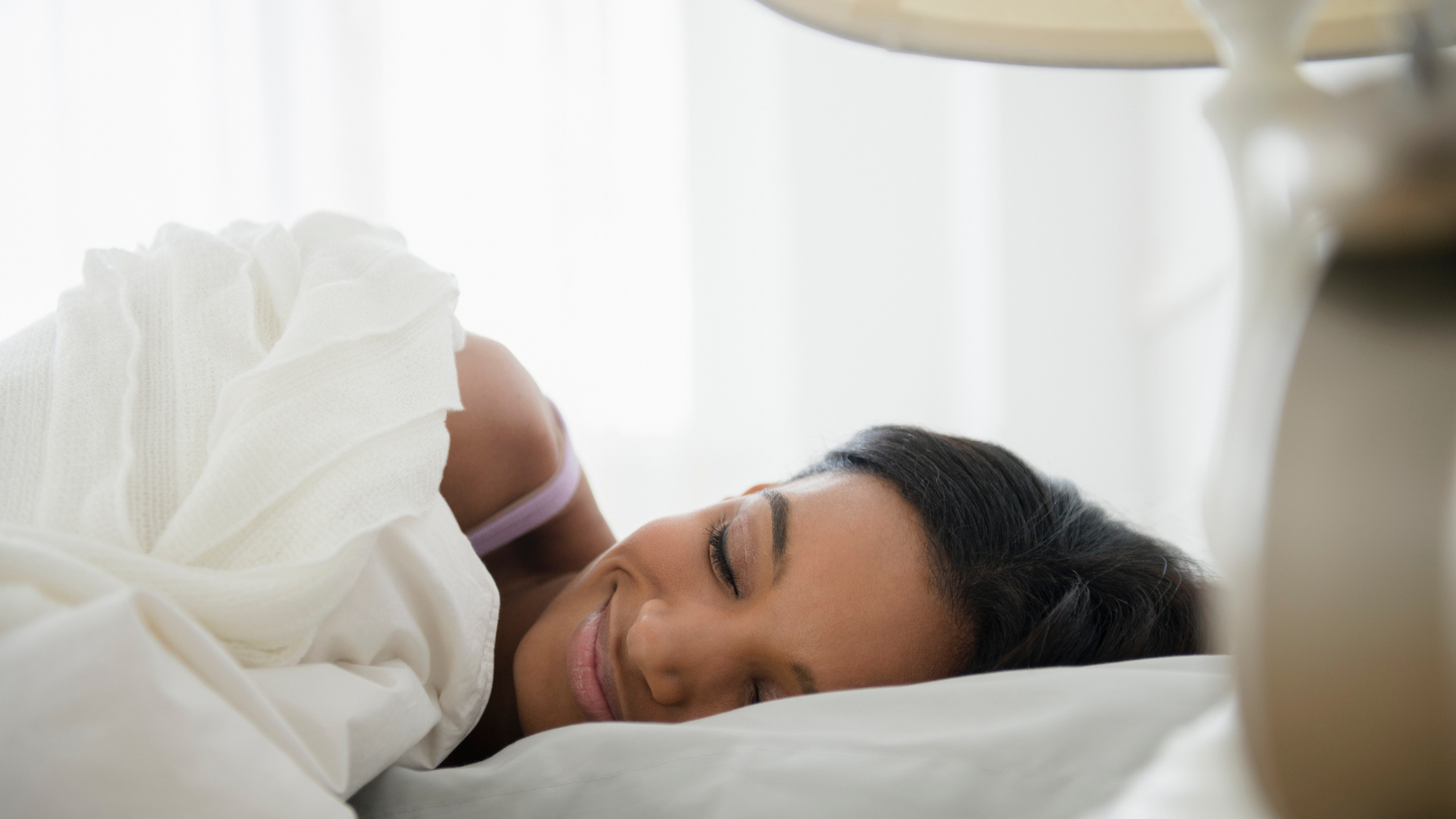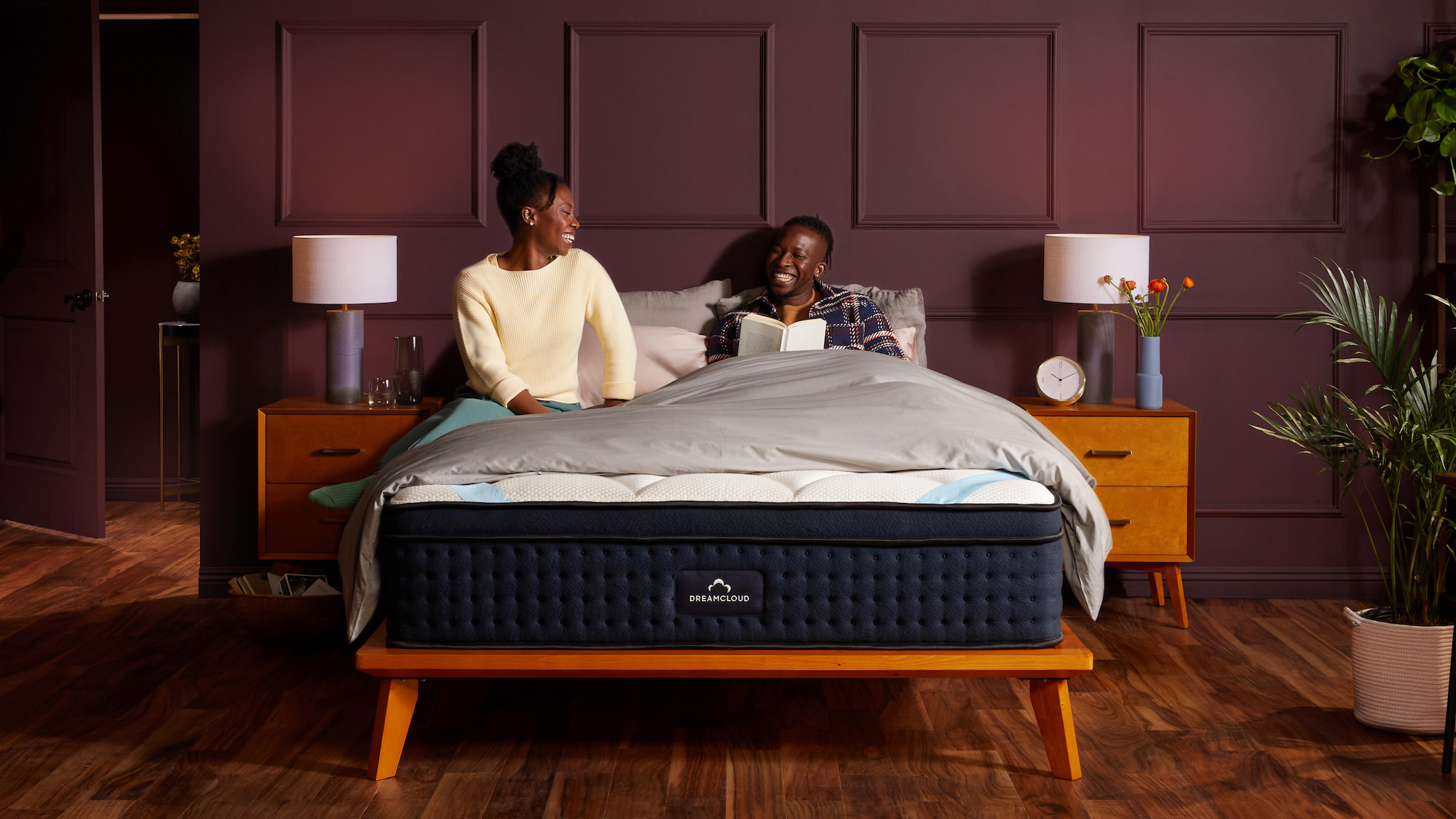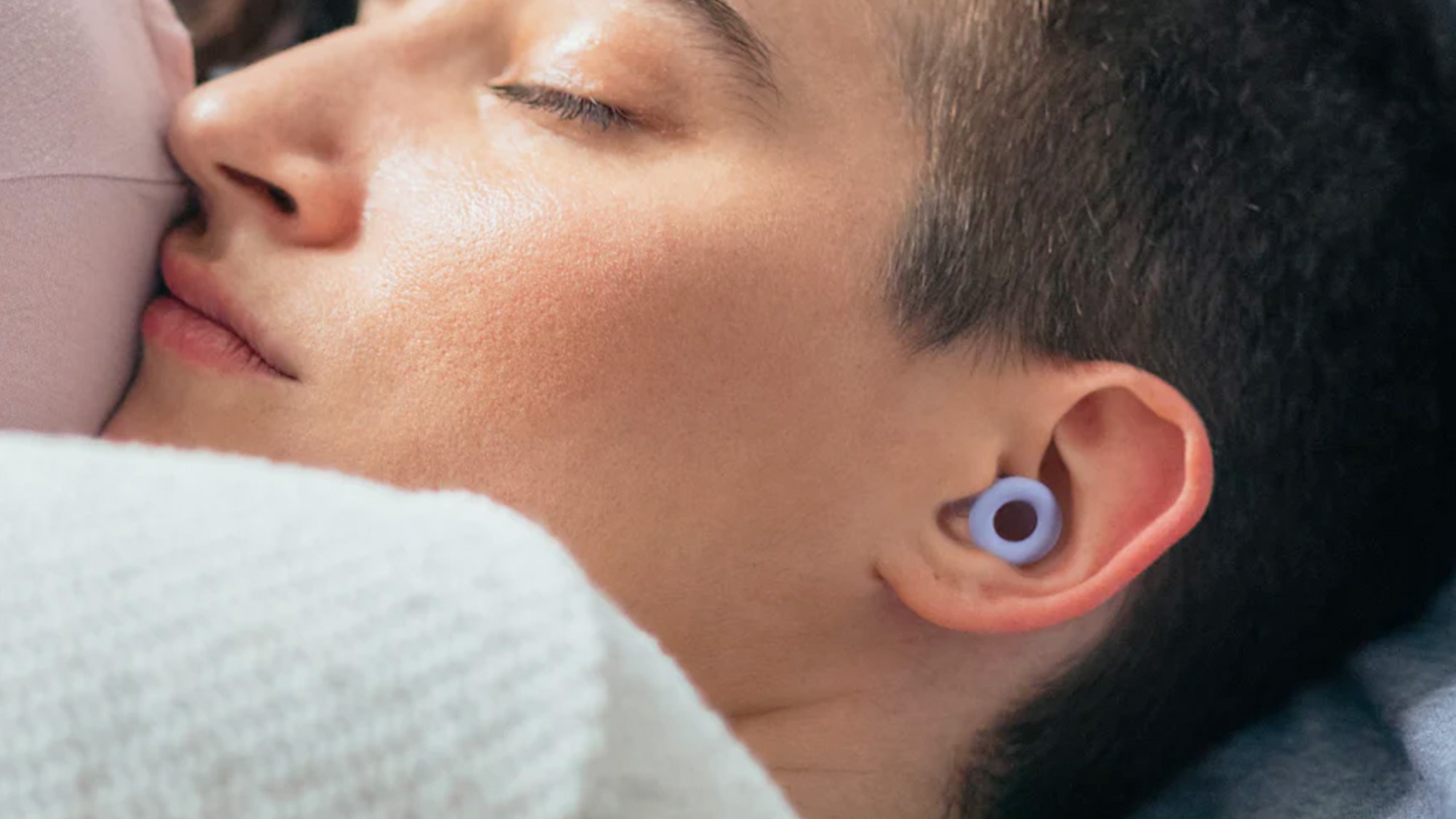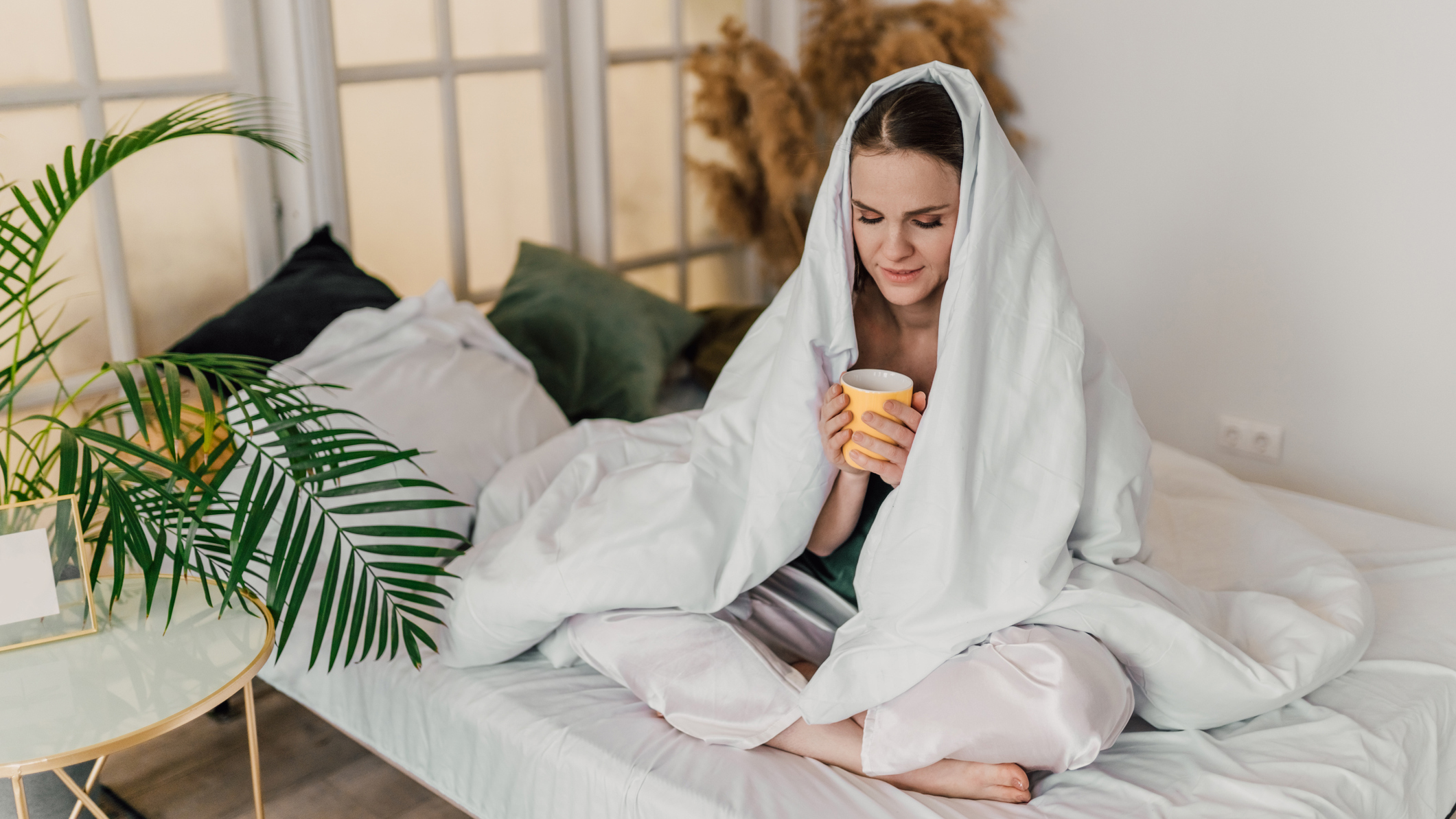
When we talk about sleep health, we tend to focus more on quantity over quality. But new research shows the quality of our slumber is equally important as the duration in giving us energy, strength and immunity.
A new study, published in the academic journal Sleep, indicates sleep quality, as well as sleep quantity, influences how well protected we are against respiratory illnesses like COVID, colds and flu viruses. So, as the cold winter months approach and we pick up the sniffles, now is the time to be striving for high quality sleep.
Key takeaways from the new study:
- Study findings show sleep quality as important to health as duration
- The study examined the association between sleep restriction, perceived sleep quality and upper respiratory tract infection
- Recruits who experienced sleep restriction and reported poor sleep quality were three times more likely to suffer respiratory infection
The study was led by Physiology Professor Neil Walsh from Liverpool John Moores University. It assessed the self-reported sleep quality of 1,318 military recruits during civilian life and at the start and end of 12 weeks of training, when their sleep was restricted by two or more hours a night. Findings showed sleep restriction increases respiratory infection, but only in those with poor quality sleep.
How much sleep do we need?

Exactly how much sleep adults need will differ from person to person, with genetics, age and lifestyle playing a significant role. However, most healthy adults will require between 7-9 hours of sleep per night. Studies suggest that adults who sleep less than seven hours a night may incur more health issues than those who sleep seven hours or more, including an increased risk of developing type 2 diabetes and poor cardiac health.
Additionally, sleeping for more than nine hours' a night is not necessarily harmful to your health and may be helpful for young adults who are still growing, people recovering from sleep deprivation and those who are unwell.
Sleep quality matters as much as quantity, says new study
Collectively, we tend to focus on ways to ensure that we're falling asleep fast, ensuring that we get the maximum amount of time asleep that is available to us. However, this new study stresses the importance of sleep quality as well as sleep duration.
The study participants’ (68% of which were male) sleep quality and respiratory health was assessed at the beginning and end of a 12-week training course – a period in which they were sleep restricted. The researchers defined sleep restriction as a reduction in sleep duration of two or more hours a night compared with civilian life. Despite having their sleep restricted, over half of the participants rated their sleep as good quality.
Quality sleep is uninterrupted and refreshing sleep that helps you feel rejuvenated in the morning. This is achieved through sleep cycles that balance the different stages of sleep – REM sleep, deep (slow-wave) sleep and NREM sleep. Signs of quality sleep include falling asleep within 30 minutes and waking no more than once.
Recruits who experienced sleep restriction during training were three times more likely to suffer respiratory infection. However, further analysis of data revealed that sleep restriction only increased respiratory infection in recruits reporting poor sleep quality. Good sleep quality was associated with protection against respiratory infection.
The next step for the researchers is to investigate whether improving sleep quality translates to reduced respiratory infection in those who can’t afford the recommended seven to nine hours of sleep each night.
7 ways to improve your sleep quality
1. Choose the right mattress for your sleep needs
Creating a comfortable and supportive sleep environment that suits your sleep needs is essential to getting good quality rest. And investing in the best mattress for your sleep position and body type is a crucial first step. The right mattress will ensure your spine is correctly aligned regardless of your sleep position, and ensure pressure points are alleviated for comfortable, restorative slumber. If back pain is impacting your sleep quality and duration, investing in one of the best mattresses for back pain can help sooth achy joints and reduce painful pressure buildup.

You could even fully equip your bed for quality sleep with our top-rated pillows and this year’s best comforters. Regularly cleaning your mattress, sheets, pillows and bedroom ensures your sleep space remains dust mite and allergen free, which is also important to getting quality ZZZs.
2. Block out ambient light and noise
You can avoid night time awakenings by blocking out ambient light and noise that disrupt your sleep. Light exposure can impact our sleep quality, as it reduces the production of the sleep-inducing hormone melatonin and disrupts your body’s circadian rhythm. It also makes it harder to transition between sleep cycles, causing repeated awakenings. Therefore, we recommend heavy curtains, blackout blinds or sleep masks for better sleep quality.
Unsurprisingly, noise is equally disruptive, making it hard to switch off and stay asleep. Loud noises can even trigger a fight-or-flight response that floods your body with stress hormones, making you alert rather than sleepy. Try noise-canceling earplugs like our tried-and-tested Loop Quiet 2 Earplugs, a white noise machine or solid room insulation. If it’s your partner’s snoring keeping you up at night, work together to find a solution.

3. Sleep at the right temperature
Temperature plays a key role in how well we sleep. Our body temperature fluctuates throughout the day depending on our environment and activity, but drops as we prepare to sleep.
Studies show the optimal sleep temperature for quality sleep is between 68 and 77 °F (20 and 25 °C). Therefore, cooling down your bedroom, or opting for a specialized cooling mattress if overheating regularly disrupts your slumber, is a great hack for improving sleep quality.
The cooler temperature and sleep surface will signal to your internal clock that it is time to sleep, helping you drop off faster.
4. Stick to a regular sleep routine
On the topic of circadian rhythm, a regular sleep schedule will also help to regulate your sleep/wake cycle, reducing the time it takes you to fall asleep and making waking up in the morning easier. A well-established bedtime and nighttime routine will optimize your circadian rhythm. It’s important to stick to this routine as best as you can as studies show as little as two nights of bad sleep can make you feel older.
5. Eat and drink sensibly
An afternoon coffee or a glass of wine with a late dinner can both keep you up at night. Hence, it’s important to make wise food and drink choices throughout the day for optimal sleep quality at night. Everyone's tolerance to caffeine is different, but caffeine can stay in the system for three to seven hours after consumption, so it's best avoided after midday. Additionally, eating too close to bedtime or consuming alcohol can also play on your sleep quality. A bedtime herbal tea is your best bet.

Dieticians recommend avoiding eating about three hours before going to bed as this allows plenty of time for your body to digest your food without disturbing your sleep without leaving you going to bed hungry.
6. Exercise regularly
We all know exercise is great for physical and mental health, but it can also be amazing for sleep health. Ensuring you are moving amply throughout the day prepares your mind and body for a sound night’s rest. Aerobic exercise can increase the amount of deep sleep you get, allowing your brain and body to rejuvenate more efficiently.
The benefits don’t stop there – exercise also releases endorphins, which are feel-good chemicals that combat stress and anxiety, both of which are known to disrupt sleep.
7. Keep screens out of bed
Research from experts at the University of Otago has found keeping digital devices out of your bed is key to getting good quality sleep. While guidelines have long focussed on the timings of using devices before bed, this study suggests where you use devices has a greater impact on sleep. It found using devices while in bed, eating into time that you planned to be sleeping, is the main problem. So, the bottom line is be disciplined with yourself and leave your phone outside your bedroom if possible.







